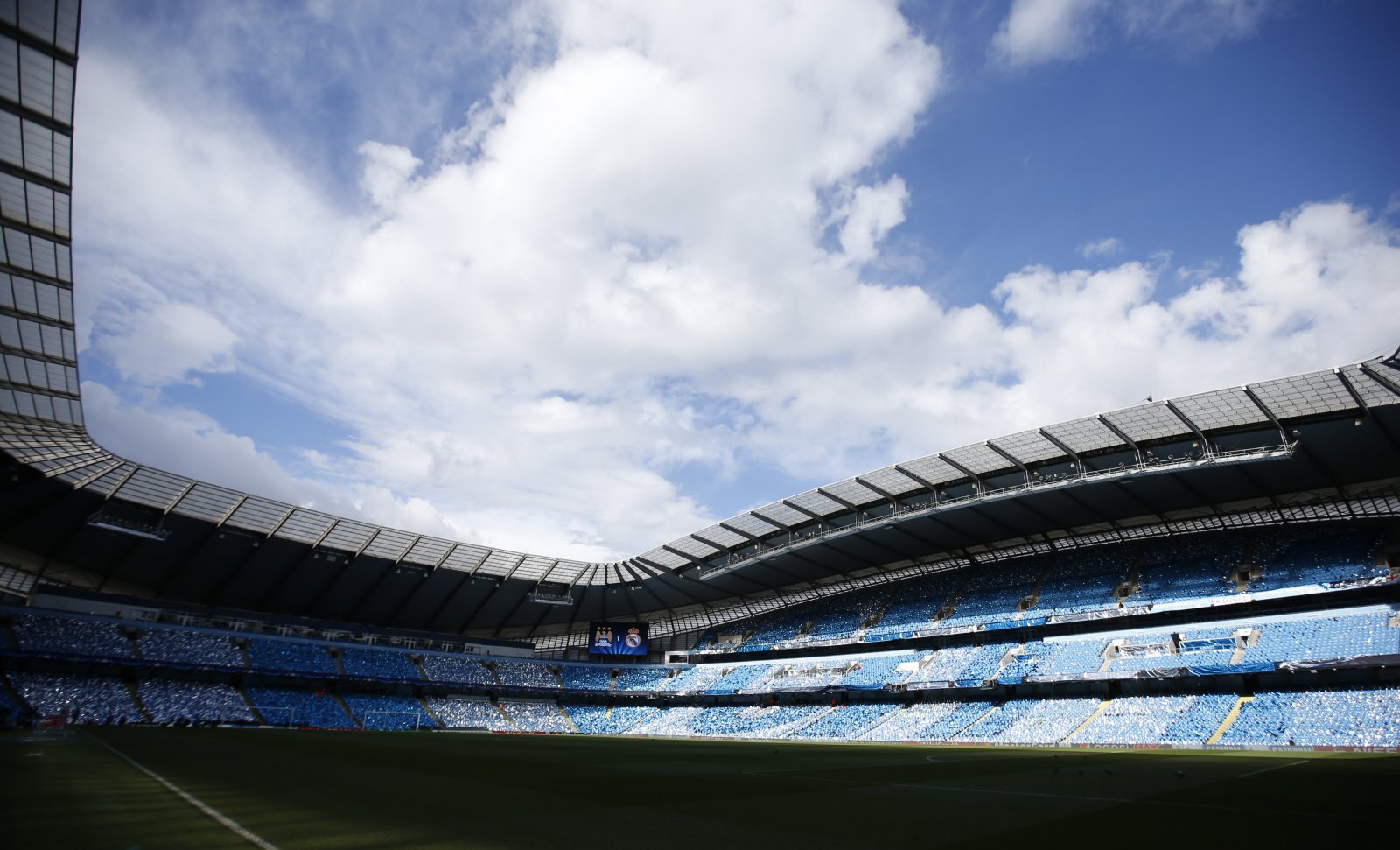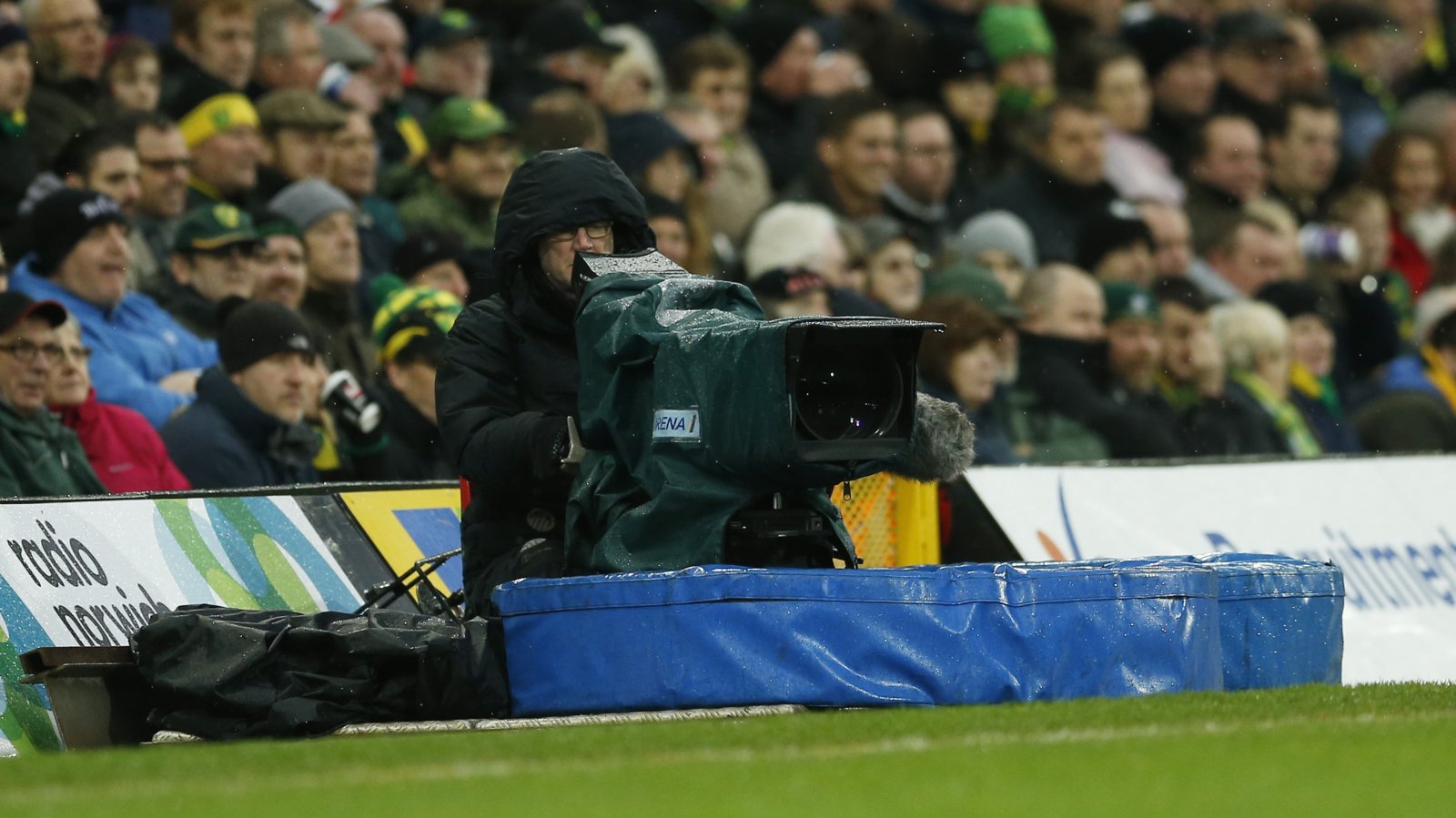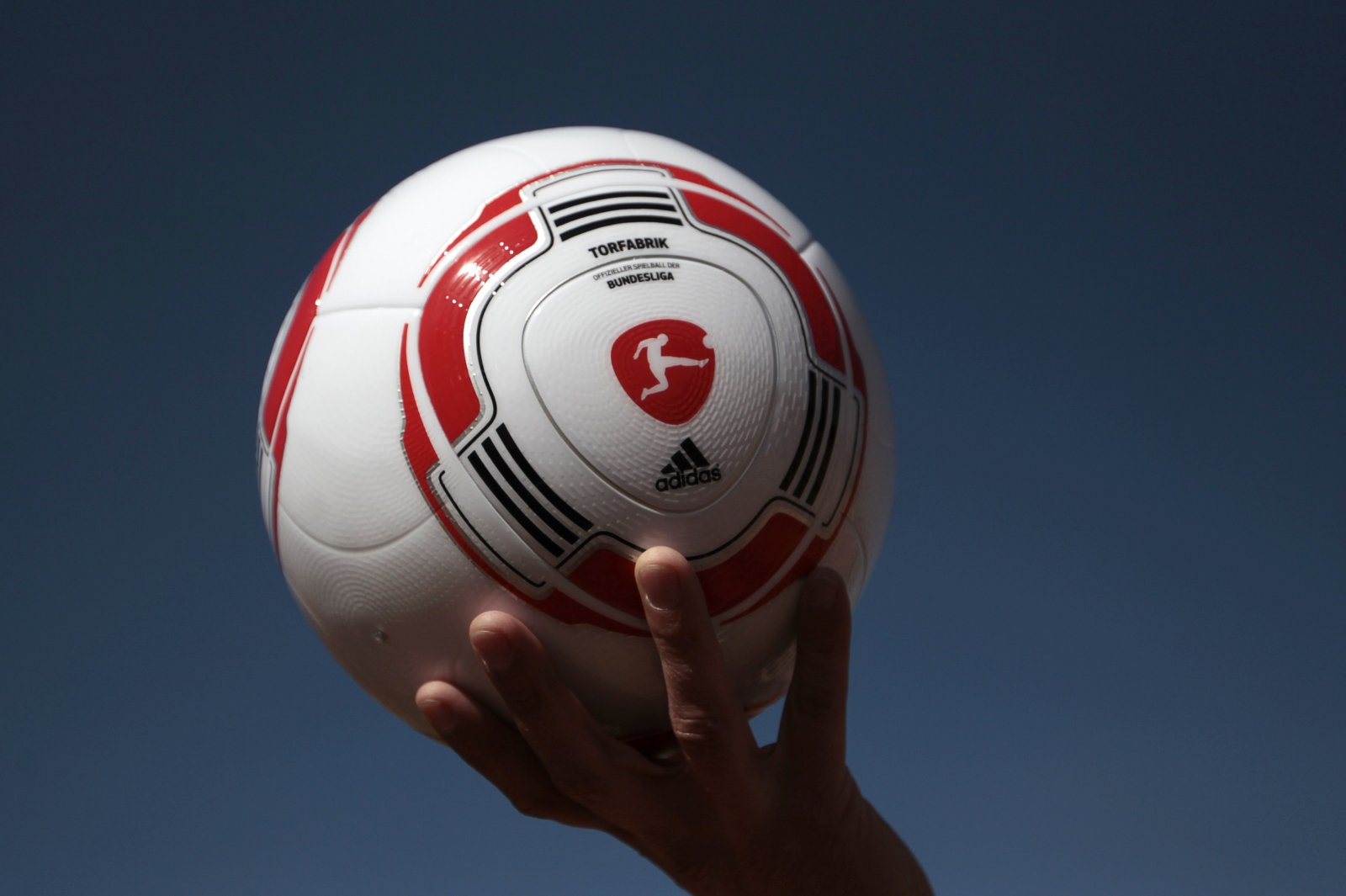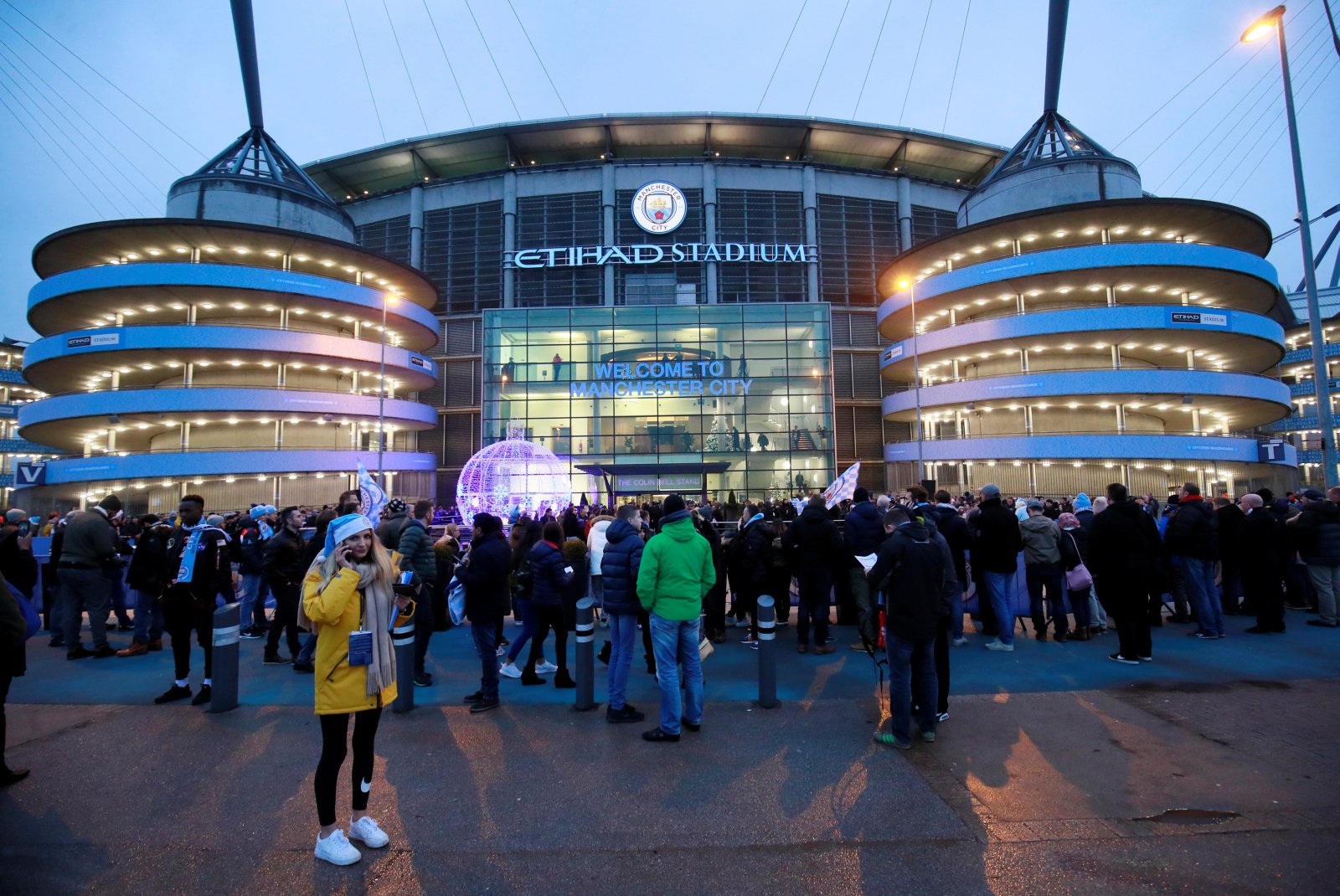Manchester City and the ‘human’ side of Premier League sponsorship
The Premier League is a global phenomenon, beaming its games into hundreds of millions of homes around the world; its biggest games are watched by billions with little connection to Manchester, London or Liverpool.
In the UK, as Sky Sports and BT Sport have once again snapped up the rights to show the league’s games live to audiences in its home territory, the focus will move to overseas rights, where the league’s income is likely to rise once again, filling the already plentiful coffers of richest league in the world.
It helps that football is a global game. Easily understandable, it transcends language; the passionate fans in the stands – their songs, the soundtrack to the matches – are as relatable as they are inspiring when they travel around the country to follow their favourite team.
But it also helps that the clubs themselves, as well as their league, can branch into new territories more easily than ever before: sponsorships and partnerships along with social media and TV coverage are avenues open to the Premier League as it grows bigger and bigger around the world.
And yet, we often overlook the fact that this growth is not simply a product of the modern world, with its digital technologies and the convenience of the internet. Vijay Eswaran, Executive Chairman of the QI group, a multinational conglomerate with businesses all over the Far East, put it into some perspective on a trip to London earlier this month.
“Let’s not forget that historically, [English football] has been in Asia and in the British Commonwealth going back the last 50 years,” Eswaran tells me. “I grew up being a big fan of the league: the Charlton brothers, George Best and Gordon Banks. I remember being a fan in 1966 when England won the World Cup – it wasn’t just England, the entire Commonwealth cheered.”
“That’s something that’s perhaps lost in translation: this is not a new advent for the EPL, it has a worldwide market, particularly in the British Commonwealth. It’s not just a question of me being an ardent fan, my parents, even my Grandad was a fan! There are also small clubs out there in Asia who have got a following simply because the EPL has been part and parcel of the culture of Asia. Essentially [the league] needs to go out and be seen, be felt and be heard there.”
“It goes across the Commonwealth. The Bundesliga, for example, doesn’t have that kind of impact.”
The QI group, and QNet, one of Asia’s leading direct selling companies, are an official sponsor of Manchester City, now an established member of English football’s storied elite, but also a club who have a track record in doing overseas growth right. The club is perhaps one of the most innovative in European football on digital media and online, and has cultivated that reputation over the last decade. They have built upon it to grow a fanbase around the world; Eswaran, though, is quite clear that their worldwide successes aren’t simply the product of a social media manager posting relatable gifs from an office in east Manchester.
“City has grown from humble beginnings to world beaters today,” he says. “When we were, at that point, considering which club to associate ourselves with, the thing that struck us about City was the human aspect. They came to us and they were very down to Earth. So the tipping point for us to choose them was not all of their digital expertise or their position in the table, it was primarily because of their humanistic nature.”
What he means is a personal touch. We know that facts, figures and bottom lines are important when it comes to partnerships, whilst more and more football clubs are hawkishly watching their social media engagement numbers in a bid to rack up an impressive figure. What Eswaran is saying is that these partnerships go deeper than that.
“We have a school in Malaysia for special kids,” he tells me, “and Vincent Kompany came on his own penny, as it were, to spend the day with these kids, to play with them and encourage them. And he did it with such great feeling that we were incredibly taken up with that.”
Just as, in a rush to transpose a narrative onto the worldwide expansion of the Premier League’s 20 clubs we overlook the historical links between English football and the Commonwealth, we perhaps overlook the cultural differences between Europe and the rest of the world.
Manchester United and their list of global partnerships have become something of a meme over the years. From global noodle partners to official medical technology sponsors, United’s list of friends in high places is long and strange. To a European onlooker, it can only be seen as a way to
make a quick cheque; a chance to cash in overseas. But even if the money they can make is an important factor, it can’t be the be-all and end-all: we forget that these brands are established and even trusted in the region where the club aspires to grow.
“People tend to forget this,” adds Eswaran, “but the Premier League and some of the major clubs represent a soft power that Britain has on a worldwide scale. Their impact actually helps Britain in so many different ways: people relate to the clubs more easily than they relate to the government.”
We know what the brands and companies get out of sponsoring a Premier League football club. The prestige of having their logo beside the world-renowned team with some of the best players in the world is an obvious reward for making the deal. (“One of the issues of pride for us is that Pep actually wears our watches all the time. It’s a trademark now,” he beams.) But another overlooked factor is what the club gets out of the partnership: it would be short-sighted at best to think it was only cash.
The answer is they gain roots in their target market, and just like the brand who get their logo beside, say, Manchester City’s, City in return get access to a fans in a new territory without having to start from scratch.
Zaheer Merchant, QI Group’s Director of Corporate Affairs sums it up recounting what City gained from their partnership.
“When they came and made their pitch to us, they had 5.5 million followers on their Facebook account,” he says. “What they wanted to do was leverage part of our following as well, as we have quite an engaged audience. By the time they had finished, and won the league too, they had taken their Facebook following to well over 10 million, just in that space of six months. Together with our database and our following, they have incrementally improved their digital footprint and online as much as within the stadium itself.”
After the final Premier League media rights are doled out to broadcasters in the UK, the attention will turn to the overseas deals, and perhaps another boost for the the ever-increasing income of the league as a whole. But that is only happening because the popularity of English football is growing as clubs work out the best ways to keep fans everywhere hooked.
Just as Eswaran and Merchant will be when they attend the Manchester derby in April. “The derby is a very localised sentiment and a very powerful one,” says Eswaran. Merchant sees it slightly differently, still months until the game: “We want to kick their Red asses all the way back to the other side of Manchester!”
All over the world, the passion is real.
About author
You might also like
SPORTEL 2021: Day One Recap
This year’s prestigious SPORTEL convention kicked off in sunny Monaco today, welcoming a host of familiar faces as well as plenty of new ones. Doors opened at 8:30am with businesses
Six Founding Riders Set To Bring The Vision Of The UCI Track Champions League To Life
Olympic Champions, UCI World Champions and World Record holders join the new track cycling competition debuting in November 2021 The UCI Track Champions League is delighted to announce that six
Sports related spending to soar this summer as pre-pandemic life resumes
New insights from eBay Ads UK reveal the potential for brands to engage with an excited but nervous nation as sports events get back on track As pubs and indoor












